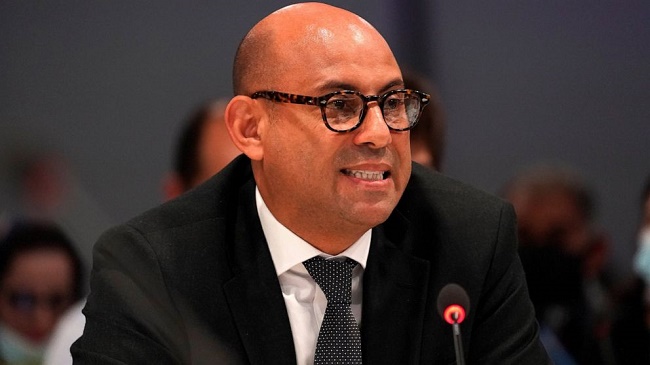The UN Climate Change Executive Secretary, Simon Stiell, is calling on States to increase international action and policy-making that places water at the forefront of efforts to adapt to the impacts of climate change, and harnesses water as a nature-based solution to the climate emergency.

Addressing the General Assembly at the UN Water Conference at the end of March 2023, he said: “We must work for water, for water to work for us.”
Climate change is putting water resources under pressure, impacting critical sectors such as agriculture and food security, energy, and health, and reversing gains towards sustainable development. Yet water is also an important carbon sink: mangrove soils can, for example, sequester up to three or four times more carbon than terrestrial soils. Protecting and expanding these types of environments can have the potential to have a dramatic impact on climate change, providing the basis for both mitigation and adaptation solutions to the climate emergency.
The UN 2023 Water Conference was held from March 22 to 24 in New York with participants making commitments to tackle the global water crisis. It confirmed that water issues truly unite the world, as a determined global community came together to make a difference not only for the future of water but for the future of the world.
The Water Action Agenda, one of the conference’s key outcomes, grew in size and scope as it progressed, with billions of dollars promised and over 700 water-action commitments by States and business aimed at achieving a water-secure world. The conference also highlighted how water can drive equality, peace, and sustainability.
Secretary-General, Antonio Guterres, emphasised that water should be at the centre of the global political agenda. “The commitments at this Conference will propel humanity towards the water-secure future every person on the planet needs,” he said.
To complement the Water Action Agenda and to further drive the momentum, Stiell announced a commitment to create a water-climate nexus alliance – focused on climate resilient water systems – within the UN Climate Change secretariat. This alliance will apply a whole-of-secretariat approach to build on existing mandates and initiatives in promote a “Water for all sectors” perspective in formulating and implementing national adaptation plans, and in the priorities of countries’ nationally determined contributions.
Knowledge to action
At a side event co-organised by the UNFCCC secretariat, the Green Climate Fund and the World Meteorological Organisation, Stiell elaborated on an action pledge coordinated by UNFCCC under its Nairobi Work Programme on impacts, vulnerability and adaptation. The Pledge hinges on three major pillars: Knowledge, Innovation, and Action, with the aim of building new types of partnerships to bridge knowledge gaps and collectively accelerate water-climate adaptation action. By harnessing diverse knowledge systems, the pledge looks to ensure “that no adaptation action focused on water is hindered by a lack of knowledge.”
Stiell also referred to the valuable knowledge and crucial role of indigenous people during a side eventco-organized with UNESCO and other organizations. Their intimate interactions with the natural world means that climate policies and actions that are grounded in the values and knowledge systems of indigenous peoples and local knowledge systems can help address the climate emergency holistically.
“I fully support efforts to ensure the voices, solutions, and values of indigenous peoples and local communities are incorporated into our process, as well as our overall work to drive climate ambition and build resilient societies,” he stated.
